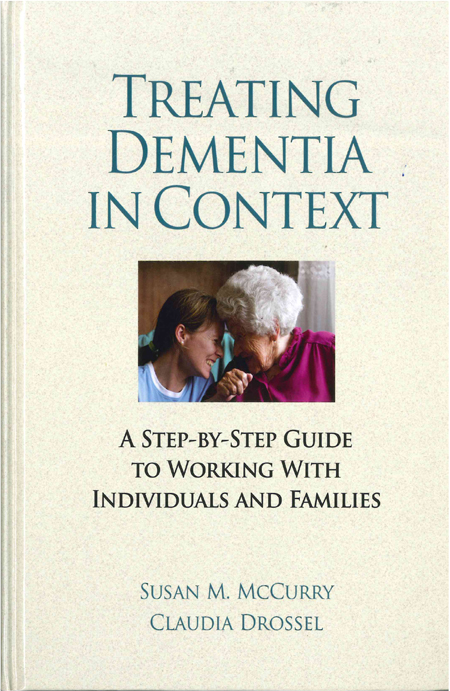

Dementia is a life-altering diagnosis for patients and loved-ones alike. The progressive disease causes cognitive, emotional, and behaviorial changes that can frustate the efforts of even the most dedicated caregivers and treatment can be a supremely challenging experience, even for seasoned health care professionals, such as nurses, social workers, psychologists, and physisicans. The authors have presented evidence based contextual model of dementia care that lays out broad intervention strategies, and ecncourages readers to use thier own creatively and inner resources to develop appropriate solutions for each uniques situation and individual.
Susan M. Mccurry, PhD, is research professor in the University of Washington Department of Psychosocial and Community Health and adjunct reasearch professor in psychiatry and behavioral sciences. She is a clinical psychologist specializing in gerontology and has worked with older adults with memory loss and their families for over 20 years.
Claudia Drossel, PhD, received her PhD in experimental psycholody in 2004 from temple University, with a specialization in the organization of learning as well as funstional and contextual approcahes to affect, behavior, and cognition. She currently is a doctoral candidate in the University of Nevada, Reno's clinical gerontology program.
After completing this course you’ll be able to:
| 1. | Making Sense of the Diagnosis |
| 2. | The Contextual Model of Dementia Care |
| 3. | Build Collaborative Relationships |
| 4. | Discuss Concerns Respectfully: Establishing Consent and Rapport in the Initial Interview |
| 5. | Ameliorate Excess Disability: Treating Sensory Loss and Comorbidities |
| 6. | Nurture the Dyad: Strengthening the Caregiver Partnerships |
| 7. | Create Contextual Solutions: Managing CommonAffective and Behavioral Changes |
| 8. | Enjoy Sharing the Journey: Supporting a Good Quality of Life |
| 9. | Going the Distance: Your Long-Term Role |
References |
| Index |
© 2007 - 2010 Homestead Schools, Inc. - Webmaster: ITSYS Solutions